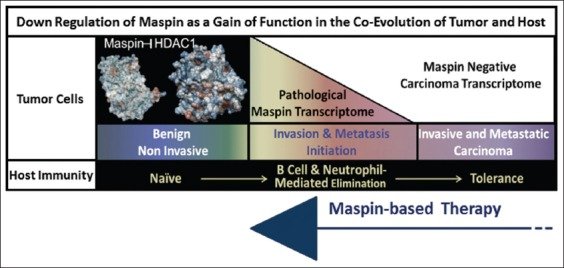
Despite the promising clinical outcome, the primary challenge of the curative cancer immunotherapy is to overcome the dichotomy of the immune response: tumor-evoked immunostimulatory versus tumor-induced immunosuppressive. The goal needs to be two-fold, to re-establish sustainable antitumor-cancer immunity and to eliminate immunosuppression. The successful elimination of cancer cells by immunosurveillance requires the antigenic presentation of the tumor cells or tumor-associated antigens and the expression of immunostimulatory cytokines and chemokines by cancer and immune cells. Tumors are heterogeneous and as such, some of the tumor cells are thought to have stem cell characteristics that enable them to suppress or desensitize the host immunity due to acquired epigenetic changes. A central mechanism underlying tumor epigenetic instability is the increased histone deacetylase (HDAC)-mediated repression of HDAC-target genes regulating homeostasis and differentiation. It was noted that pharmacological HDAC inhibitors are not effective in eliminating tumor cells partly because they may induce immunosuppression. We have shown that epithelial-specific tumor suppressor maspin, an ovalbumin-like non-inhibitory serine protease inhibitor, reprograms tumor cells toward better differentiated phenotypes by inhibiting HDAC1. Recently, we uncovered a novel function of maspin in directing host immunity towards tumor elimination. In this review, we discuss the maspin and maspin/HDAC1 interplay in tumor biology and immunology. We propose that maspin based therapies may eradicate cancer.
This article was published as:
Sijana H. Dzinic, M. Margarida Bernardo, Daniel S. M. Oliveira, Marian Wahba, Wael Sakr, Shijie Sheng. Tumor suppressor maspin as a modulator of host immune response to cancer. Bosn J Basic Med Sci. 2015 Sep; 15(4): 1–6. doi: 10.17305/bjbms.2015.783
Leave a Reply